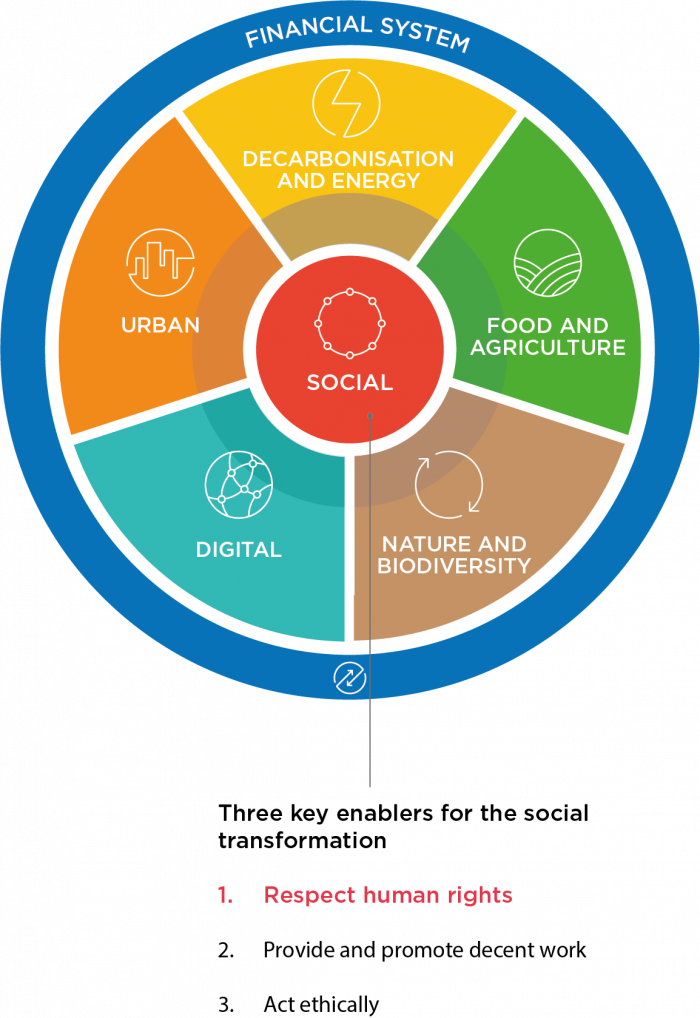Ensuring corporate respect for human rights: A benchmarking approach

This paper articulates our strategy to assess and incentivise companies to respect the rights of all people. It outlines our theory of change and benchmarking approach, builds on lessons learned from previous iterations of the Corporate Human Rights Benchmark, presents examples of impact, and outlines calls to actions for all stakeholders to help accelerate change.
When we talk about business, it is easy to forget that we are really talking about people. Companies are collections of people, whose decisions and actions impact other people: employees and their families, surrounding communities, workers in companies’ value chains, and the customers who buy their products and services. It therefore seems only right for companies to put people at the heart of what they do – and for the World Benchmarking Alliance to put people at the heart of its corporate benchmarks.
The World Benchmarking Alliance develops free and publicly available benchmarks that measure and incentivise company contributions towards the Sustainable Development Goals (SDGs). Human rights are inextricably linked to these goals – over 90% of the SDG targets are directly connected to international and regional human rights instruments and labour standards. This is reflected in the central premise of the SDG agenda to ‘leave no one behind’. Recognising this, we have placed the transformation of the social system at the heart of our model that guides our benchmarking process. Respect for human rights is the basis of this transformation.

In practice, this means that all 2,000 companies on our SDG2000 list will be assessed on human rights, with a set of core social indicators that are embedded in all of our benchmarks, as well as specific indicators that are relevant to their industry.
Additionally, using the revised and more detailed Corporate Human Rights Benchmark Methodology, we will continue to conduct in-depth assessments of a subset of these companies, evaluating sectors that have been identified as high-risk in terms of their human rights impacts.

